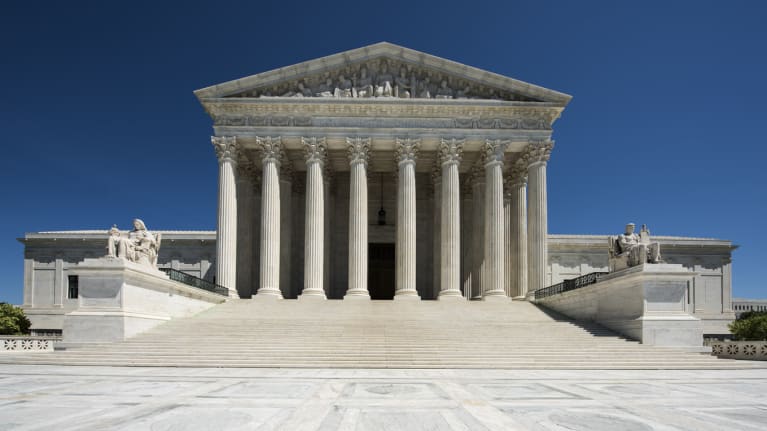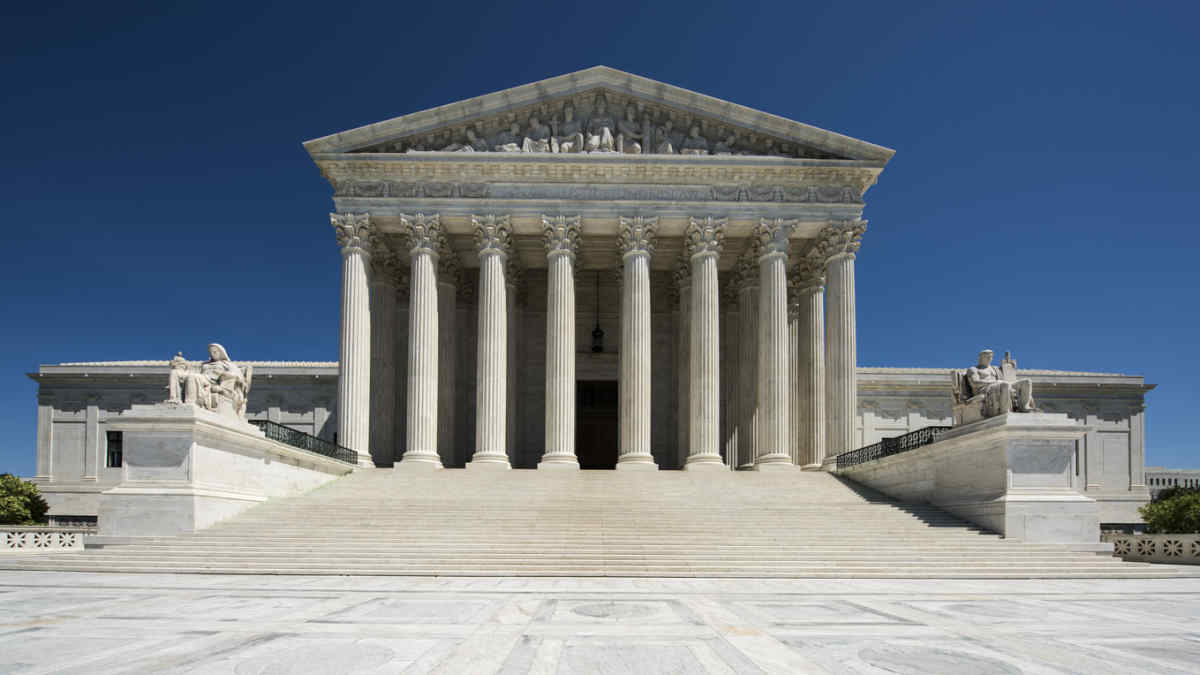

The U.S. Supreme Court clarified the scope of the First Amendment’s application to public employees June 27 in a case involving a football coach, Joseph Kennedy, who was fired for praying while at school and visible to students.
The school district disciplined the coach “because it thought anything less could lead a reasonable observer to conclude (mistakenly) that it endorsed Mr. Kennedy’s religious beliefs,” the court wrote. “That reasoning was misguided. Both the Free Exercise and Free Speech Clauses of the First Amendment protect expressions like Mr. Kennedy’s. Nor does a proper understanding of the Amendment’s Establishment Clause require the government to single out private religious speech for special disfavor.”
Background
In this case, a high school football coach was fired for praying at the 50-yard line after games. Although the case involves First Amendment rights in public-sector employment, private employers may be watching the case since religious accommodation is a hot topic in the workplace.
In Kennedy v. Bremerton School District, the Supreme Court was asked to decide several issues, including whether a public school employee is engaged in government speech that lacks First Amendment protection when he says a short, quiet prayer by himself in front of students.
“The First Amendment ‘free speech’ argument really only affects government employers, like a school district, but I think private and public employers will be watching this case to see how the Supreme Court views the accommodation efforts apparently made by the school district,” said Kelly Dobbs Bunting, an attorney with Greenberg Traurig in Philadelphia.
The Debate
During oral argument on April 25, lawyers for the coach and the school district had different descriptions of the activities that led to the coach’s termination.
On behalf of the coach, attorney Paul Clement with Kirkland & Ellis in Washington, D.C., said the prayer was “brief” and “quiet.”
“When Coach Kennedy took a knee at midfield after games to say a brief prayer of thanks, his expression was entirely his own,” Clement said. “That private religious expression was doubly protected by the Free Exercise and Free Speech clauses.”
He argued that “the government does not endorse all private religious speech just because it takes place on the school side of the gates.”
Several of the justices seemed to sympathize with the coach. Justice Clarence Thomas said, “We know [praying is not] a part of his job, especially since the school district didn’t know anything about it initially and it objected to it.”
Clement replied, “That’s music to my ears, Justice Thomas.” He said, “We’re saying this isn’t part of his job, so it’s private speech.” He added, “We’d also say, because it’s not part of his job, it’s private religious activity that’s protected by the Free Exercise Clause.”
Justice Brett Kavanaugh noted that the coach wasn’t saying “huddle up, team” before he prayed. The school district, however, raised concerns about the coach pressuring students to join the prayer.
Richard Katskee, the legal director for Americans United for Separation of Church and State, an advocacy group in Washington, D.C., represented the school district at oral argument. He said the school district sent the coach a letter saying he could pray where it was visible to students but asking him not to pray with and to the students.
The coach prayed quietly at games without issue until he sent a letter “demanding to go back and do what [he] was doing before, which is audible prayers,” and insisting that “students have to be able to join,” according to Katskee, who noted that the coach went to the press and said, “This is how I make these kids better people.”
Katskee said the coach’s actions pressured students to pray “and also divided the coaching staff, sparked vitriol against … school officials, and led to the field being stormed and students getting knocked down. The idea that the school district couldn’t do something when a zoo was created on the field [is] unimaginable,” he argued.
Justice Elena Kagan seemed sympathetic to the school district’s arguments and discussed scenarios in which students may feel coerced to join the prayer if they think it will make the coach more likely to put them into a football game. “And this is a kind of coercion that’s improper for 16-year-olds,” she said.
Clement replied, “When the coach is by himself at the midfield giving a 15-second fleeting prayer, … if you call that coercion, you are making an important category mistake.”
Standards for Private Employers
Although the First Amendment doesn’t apply to private businesses, employers with at least 15 employees must comply with Title VII of the Civil Rights Act of 1964, which prohibits covered businesses from discriminating against employees based on their sincerely held religious beliefs.
Title VII requires an employer to accommodate an employee’s sincerely held religious belief, practice or observance, unless it would cause an undue hardship on the business.
What is an undue hardship? Courts have said that an undue hardship is created by a religious accommodation that has more than a “de minimis,” or very small, cost or burden on the employer.
According to the Equal Employment Opportunity Commission (EEOC), the federal agency that enforces Title VII, employers should engage in an interactive process to see if a reasonable accommodation can be provided.
“A reasonable religious accommodation is any adjustment to the work environment that will allow the employee to practice his religion,” the EEOC said. “Flexible scheduling, voluntary substitutions or swaps, job reassignments, and lateral transfers are examples of accommodating an employee’s religious beliefs.”

